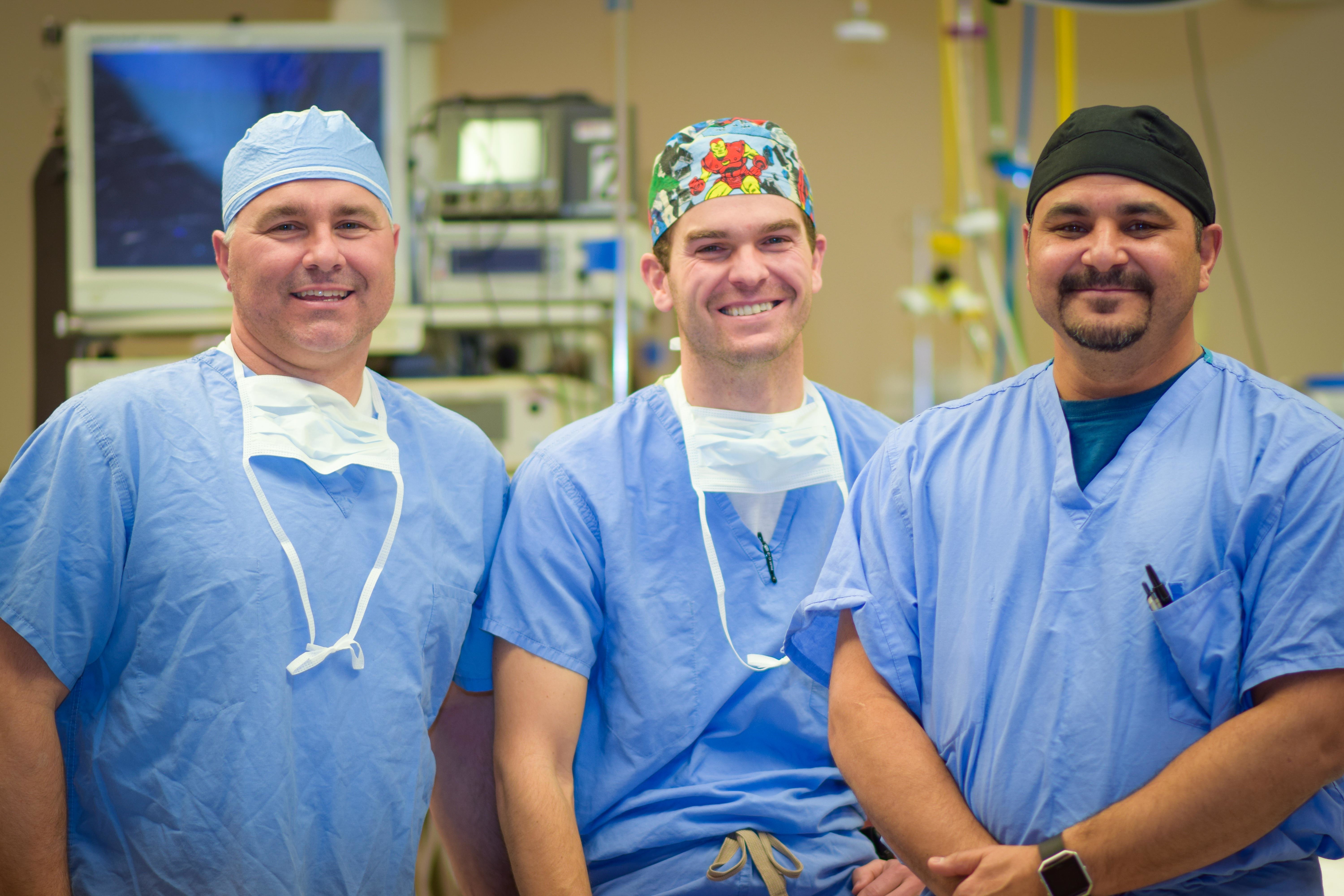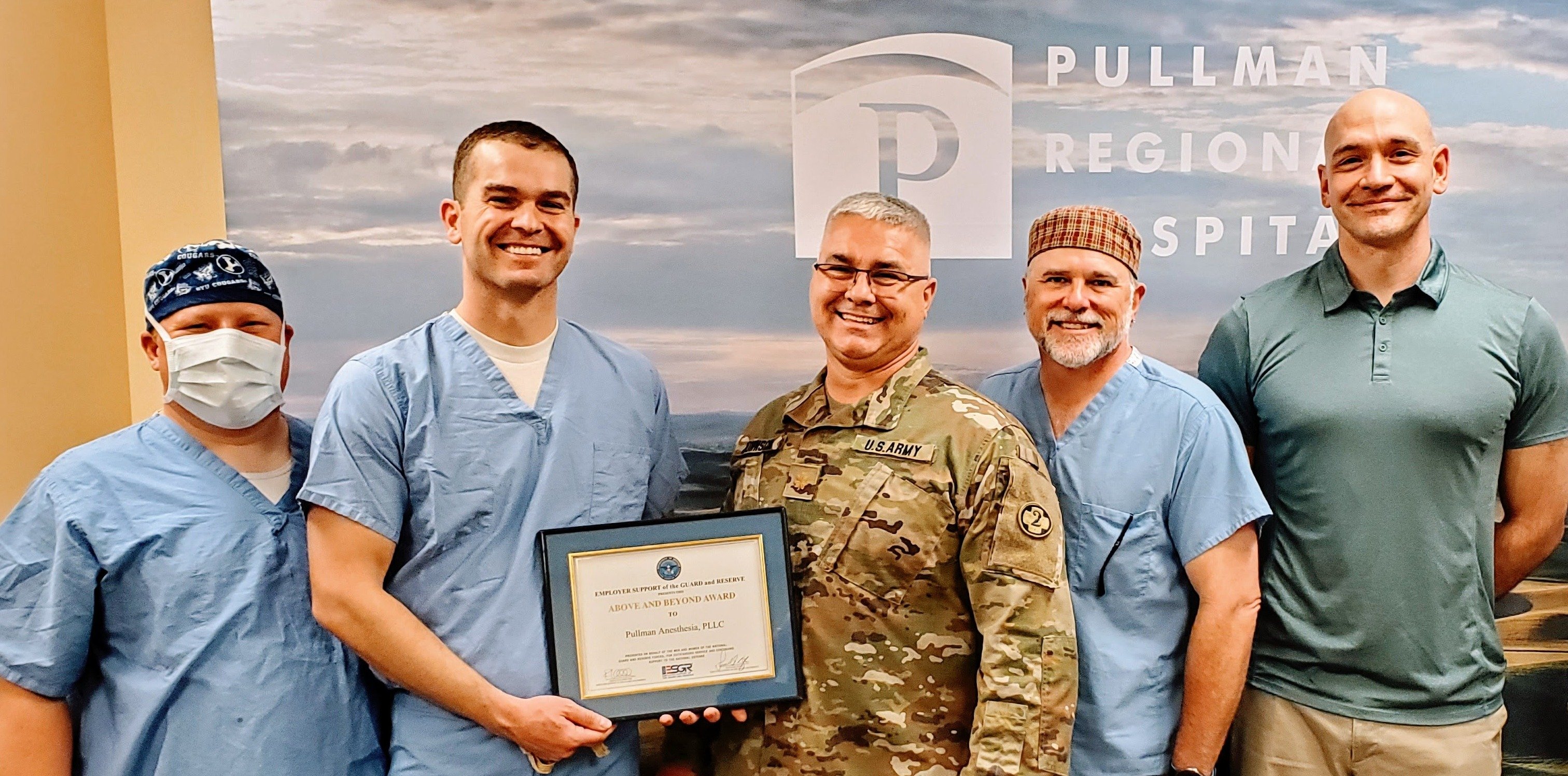Pullman Anesthesia
The team of Certified Registered Nurse Anesthetists (CRNAs) at Pullman Anesthesia have been trusted partners of Pullman Regional Hospital for more than 30 years. They are dedicated to your care before, during, and after your surgery or procedure. Providing a safe and high quality anesthetic is their top priorities! To promote your best possible outcome, Pullman Anesthesia uses a variety of anesthetic techniques, including sedation, general anesthesia, regional anesthesia, and neuraxial anesthesia. Pullman Anesthesia is also a member of the Society of Opioid Free Anesthesia (SOFA), dedicated to individualized opioid-free anesthesia to reduce the risks and side effects of opioid use.
Labor & Delivery
Pullman Anesthesia isn't just focused on those undergoing a surgery or procedure. They also provide epidural services for labor and delivery, as well as anesthesia for cesarean sections. The team is available 24/7 to help you with pain management during the birthing process, if you so choose. They are there for you, when you need it most!
Pain Management
Pullman Anesthesia also collaborates with Pullman Regional's Interventional Pain Management Clinic to offer some very specialized care for those patients undergoing total joint replacement.
Pullman Anesthesia is dedicated to to you, your care, and helping you get back to living your best life! If you have questions about your anesthesia, please reach out to 509-336-7570.



